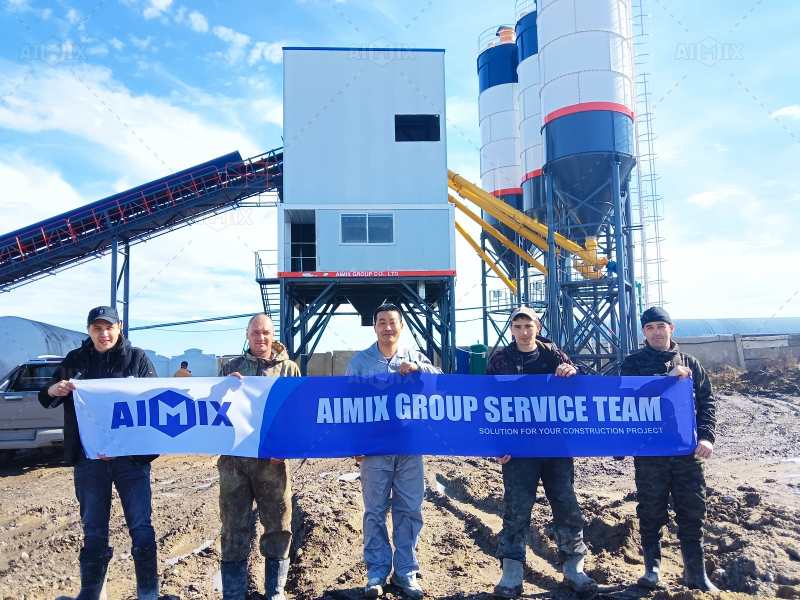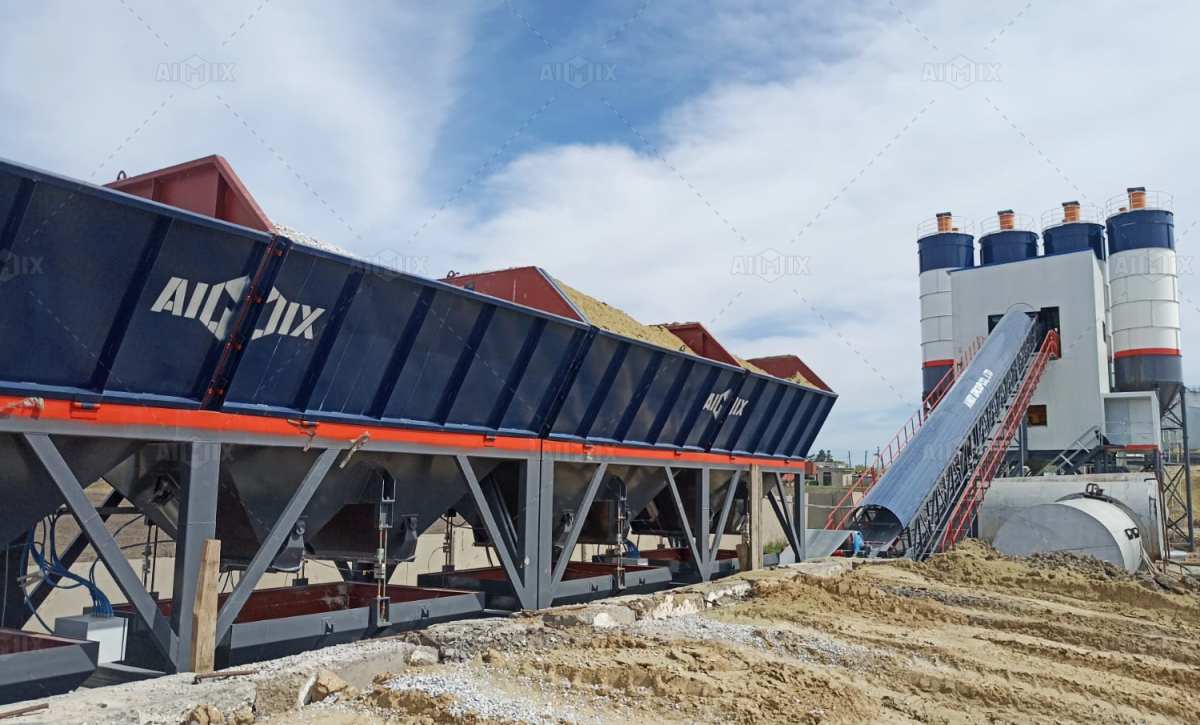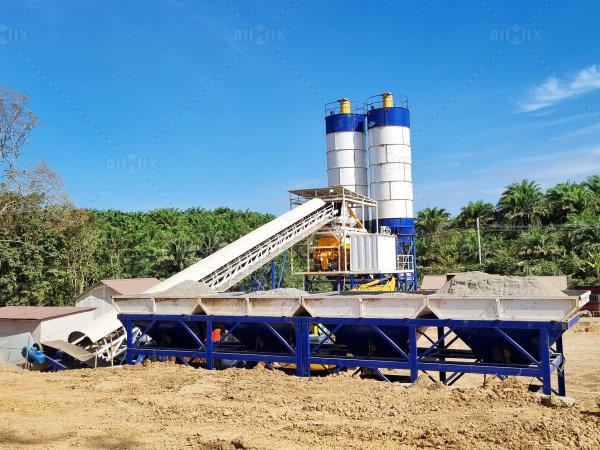3
0
0
Ready Mix Concrete Plant Suppliers: Key Considerations for Quality and Service
When selecting a ready mix concrete plant supplier for your business, the decision goes beyond just finding a company that offers competitive prices. It’s important to choose a supplier that can consistently provide high-quality concrete and offer reliable service. The quality of the concrete produced and the level of support you receive can significantly impact your project’s efficiency, budget, and timelines.
In this article, we’ll discuss the key considerations when selecting ready mix concrete plant suppliers. We will cover quality, service, reputation, and customer support, ensuring you make a well-informed decision that meets both short-term and long-term needs for your projects.

1. Quality of Concrete Production
One of the most critical factors to consider when choosing a ready mix concrete plant supplier is the quality of the concrete they produce. The quality of the concrete directly impacts the durability, strength, and performance of your construction project. Here are some points to consider regarding concrete quality:
2. Service and Timeliness
Service is another crucial consideration when choosing a ready mix plant supplier. Concrete delivery and service quality can affect the smooth operation of your project. Delays in concrete supply can result in downtime and project delays, leading to increased costs. Here’s what to look for:

3. Reputation and Experience
Choosing a supplier with a proven reputation and extensive experience in the industry is essential. Established suppliers are more likely to have the expertise needed to handle various types of projects, from residential construction to large-scale commercial projects. Here are some ways to evaluate a supplier's reputation:
4. Customer Support and Communication
Good customer support is critical when working with any supplier, particularly for something as important as ready mix concrete. Concrete quality and delivery issues can arise unexpectedly, so having responsive customer support is essential to resolve issues quickly. Consider the following when evaluating customer support:

5. Pricing and Cost-Effectiveness
While price shouldn’t be the only factor when selecting a ready mix concrete plant supplier, it is an important consideration. A competitive price must reflect not only the quality of the concrete but also the overall value the supplier provides in terms of service and reliability.
6. Environmental Considerations
With growing concerns over environmental impact, many suppliers now offer eco-friendly concrete options, such as recycled aggregates or lower-carbon footprint mixes. If sustainability is important to your project, it’s worth inquiring whether the supplier offers green concrete solutions and how their production methods minimize environmental impact.
Conclusion
Choosing the right ready mix concrete plant supplier is essential to the success of your construction project. Quality, service, reputation, customer support, pricing, and environmental considerations all play a role in ensuring that you receive the best concrete products and services. By evaluating these factors and selecting a supplier that aligns with your project’s needs and goals, you can ensure consistent quality, on-time delivery, and overall project success. Take the time to research potential suppliers, ask the right questions, and consider long-term value to make an informed decision that supports the smooth execution of your project.
In this article, we’ll discuss the key considerations when selecting ready mix concrete plant suppliers. We will cover quality, service, reputation, and customer support, ensuring you make a well-informed decision that meets both short-term and long-term needs for your projects.

1. Quality of Concrete Production
One of the most critical factors to consider when choosing a ready mix concrete plant supplier is the quality of the concrete they produce. The quality of the concrete directly impacts the durability, strength, and performance of your construction project. Here are some points to consider regarding concrete quality:
- Consistency: A reputable supplier should be able to deliver consistent quality with every batch. Concrete needs to meet specific strength requirements and adhere to industry standards. Suppliers that have advanced technology and automated batching processes are more likely to produce uniform concrete mixes.
- Raw Materials: The quality of raw materials used in the production of concrete—such as cement, aggregates, and additives—directly affects the final product. Ensure that your supplier sources high-quality raw materials and has a system in place for quality control.
- Testing and Certifications: Good suppliers will conduct regular testing to ensure their concrete meets the required standards. Look for suppliers with certifications such as ISO 9001 (quality management) or other relevant industry certifications that ensure their concrete products meet stringent performance and safety criteria.
2. Service and Timeliness
Service is another crucial consideration when choosing a ready mix plant supplier. Concrete delivery and service quality can affect the smooth operation of your project. Delays in concrete supply can result in downtime and project delays, leading to increased costs. Here’s what to look for:
- On-Time Delivery: A reliable supplier will ensure that concrete is delivered on time, every time. Timeliness is especially important when working with tight construction schedules. Delays can result in issues such as material wastage, project slowdowns, and missed deadlines.
- Order Flexibility: Your project may require varying amounts of concrete over time. A good supplier will be flexible and able to accommodate changes in order size, timing, and delivery requirements. They should also have the capability to deliver smaller or larger quantities of concrete based on your needs.
- Logistics and Fleet: Check if the supplier has a robust fleet of ready mix trucks capable of delivering to your site without delays. The quality and maintenance of the trucks, as well as their ability to handle difficult delivery conditions, are also important.

3. Reputation and Experience
Choosing a supplier with a proven reputation and extensive experience in the industry is essential. Established suppliers are more likely to have the expertise needed to handle various types of projects, from residential construction to large-scale commercial projects. Here are some ways to evaluate a supplier's reputation:
- Industry Reputation: Look for suppliers with a solid reputation in the industry. Online reviews, testimonials, and word-of-mouth referrals can help you assess the reliability and quality of their services.
- Experience with Similar Projects: A supplier with experience in your specific type of project—whether residential, industrial, or infrastructure—will have the knowledge and capabilities to meet your specific requirements. Ask about the supplier’s history and track record with projects similar to yours.
- Client Relationships: Long-term relationships with clients can indicate the reliability and satisfaction of a supplier’s services. Suppliers that have been working with clients for many years are likely to provide high-quality products and dependable service.
4. Customer Support and Communication
Good customer support is critical when working with any supplier, particularly for something as important as ready mix concrete. Concrete quality and delivery issues can arise unexpectedly, so having responsive customer support is essential to resolve issues quickly. Consider the following when evaluating customer support:
- Responsiveness: A good supplier should be responsive to your inquiries and provide quick responses to issues that arise. The ability to easily reach customer service or technical support is essential for resolving any challenges or concerns during your project.
- Clear Communication: Clear communication is vital, especially when coordinating concrete deliveries and managing logistics. The supplier should ensure that there is a consistent point of contact, whether for scheduling, troubleshooting, or answering any questions.
- Post-Delivery Support: After the concrete is delivered, some suppliers offer post-delivery support, such as checking the quality of the concrete after curing, providing advice on mix adjustments, or helping with troubleshooting if problems arise.

5. Pricing and Cost-Effectiveness
While price shouldn’t be the only factor when selecting a ready mix concrete plant supplier, it is an important consideration. A competitive price must reflect not only the quality of the concrete but also the overall value the supplier provides in terms of service and reliability.
- Transparent Pricing: A reputable supplier will offer transparent pricing, ensuring that you are aware of the costs involved, including delivery charges, additional fees, or discounts for bulk orders. Avoid suppliers that have hidden costs or unclear pricing structures.
- Long-Term Value: When assessing the price, consider the overall value you’re getting. A slightly higher price may be justified by better quality, faster deliveries, and improved customer service, which can ultimately lead to cost savings and a more successful project.
6. Environmental Considerations
With growing concerns over environmental impact, many suppliers now offer eco-friendly concrete options, such as recycled aggregates or lower-carbon footprint mixes. If sustainability is important to your project, it’s worth inquiring whether the supplier offers green concrete solutions and how their production methods minimize environmental impact.
Conclusion
Choosing the right ready mix concrete plant supplier is essential to the success of your construction project. Quality, service, reputation, customer support, pricing, and environmental considerations all play a role in ensuring that you receive the best concrete products and services. By evaluating these factors and selecting a supplier that aligns with your project’s needs and goals, you can ensure consistent quality, on-time delivery, and overall project success. Take the time to research potential suppliers, ask the right questions, and consider long-term value to make an informed decision that supports the smooth execution of your project.